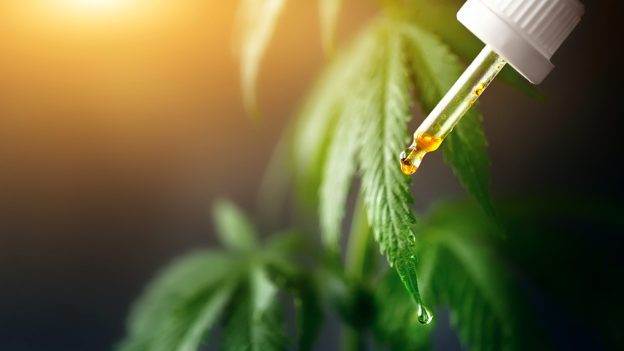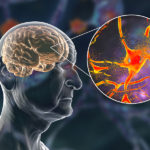By David Blyweiss, M.D., Advanced Natural Wellness
October 15, 2021
I was absolutely floored when the FDA approved the new Alzheimer’s drug, aducanumab, last June.
This is another one of those drugs that reduces amyloid plaques in the brain. But decades of research have already proven that targeting the clearance of beta amyloid is a massive failure.
The fact is amyloid plaques themselves do not cause Alzheimer’s disease.
The brain builds the plaque to protect itself from an onslaught of viruses and other terrible things that cause inflammation in your brain. When you get rid of the amyloid, things just end up getting worse.
Worse, the drug comes with an extremely risk side effect: brain swelling.
To top it off, the clinical trials for aducanumab showed there was “no functional improvement that was noticeable to patients or their family members.”
So let’s get this straight. The drug doesn’t offer noticeable improvement in patients. It will likely make their condition worse. And it could cause brain swelling, which further damages the memory and is potentially fatal.
MD Exposes the Hidden Danger to Your Eyes

When your eyesight starts to fail, it's a real problem. Suddenly you can't go to the grocery store... you can't get to the doctor if you have an emergency... you can't meet your friends for dinner…
Your "regular" doctor doesn't have time to keep up with the latest research. And the same goes for eye doctors. They go to school to learn how to fit you for glasses and contacts, but have no way of preventing the damage and loss of eyesight that threatens your freedom and independence.
Let me show you something that explains a LOT about how your eyes work.
In my FREE Special Report, I'll show you a HUGE, untapped resource for your eyes that safely and naturally restores clear, effortless eyesight.
Click here to get started...
And you can get all of this for the hefty price of $56,000 a year.
That’s a hard sell.
But what if there was a natural, inexpensive way to protect your brain?
A Powerful Protector for Your Brain
In recent years we’ve seen an explosion in CBD research. Among other things, it’s been show to help reduce anxiety, pain and psychotic symptoms. And in 2018 the FDA approved a CBD product called Epidiolex to treat epileptic seizures.
Now, research is finding it may be beneficial against Alzheimer’s disease.
One of the main reasons why we have brain diseases is because of inflammation, which produces oxidative stress and free radicals. This plays a crucial role the development of amyloid plaques. The greater the inflammation, the greater the negative impact.
Worse, amyloid can gradually accumulate in the mitochondria, where it produces even more oxidative damage and free radicals in your brain cells.
The high antioxidant and anti-inflammatory activities in CBD decrease oxidation and free radical production in your brain. It also counteracts mitochondrial alterations cause by the amyloid.
But it may do something else, too.
The World's Quickest Solution for Ending Prostate and Urinary Misery
This has recently been revealed to be one of the only real breakthroughs in prostate health.
The seeds of a strange fruit (sometimes called "Chinese Apples") hold powerful phytonutrients that are a revolution in prostate health.
In fact, UCLA and Veterans Administration research have now proved this to be true.
Not only that, but it may be the worlds quickest solution for ending prostate misery.
Simply stated, these phytonutrients represent a huge step beyond beta sitosterol, saw palmetto, and other phytosterols alone.
Simply click HERE if you want to have fast prostate relief...restful, uninterrupted sleep...no more constant "urges to go"...enhanced virility...and optimal prostate support for life.
More recently, we’ve learned that CBD turns down inflammation by lowering levels of the protein IL-6. At the same time, it increases levels of two other proteins in the brain (IL-33 and TREM2) that clean out viruses, damaged neurons and amyloid plaque.
While there have not been any large, long-term clinical trials on these effects, this is still great news. Especially considering there is no known cure for Alzheimer’s, and all attempts to create an effective Alzheimer’s drug have failed.
Better yet, the Word Health Organization reports that CBD has a good safety profile. There is no evidence of any public health-related problems associated with it. So it’s much safer than some of the Alzheimer’s drugs that have had such negative outcomes.
How to Buy CBD
Hemp and marijuana are both from the Cannabis plant. CBD from Hemp is not the same thing as THC from marijuana. Yes, they both come from the Cannabis Sativa plant but with very different chemical properties. Marijuana with a higher percentage of THC will get you high, Hemp with less than 0.3% THC will not. That same Hemp plant will produce the CBD flower and oils that are legal in every State.
Unfortunately, the U.S. CBD market is a Wild West. The FDA hasn’t created any regulations for it yet. So you need to do your research prior to buying it.
You’ll see things like CBD ice cream, gummies, and lollipops flooding the market. Really, it’s just a lot of creative marketing and not worth your time or money.
The best CBD oils will come from USDA certified organic Hemp farmers who are experienced in organic farming. You want it to be tested for potency, pesticides, mold, microbes and heavy metals. Look for one that has 1,000 milligrams per bottle in each bottle of 30 milliliters. That way, one full milliliter has at least 30-33 milligrams of CBD. That’s a low, normal amount to try.
And don’t get confused by the CBD labels. You’ve got your broad-spectrums, full-spectrums or isolates. Broad and full spectrums come with what is called the “entourage effect”. They contain numerous other phytochemicals from the plant which may or may not complement the effects of CBD.
Since CBD itself is the most studied compound in the Cannabis Sativa plant, the most important thing is to make sure each dose contains around 30 milliliters of it. Oh and be sure that the label says sourced in the U.S., otherwise what’s in the bottle from foreign unregulated farms may not be safe and/or not contain what you’ve been sold on.
SOURCES:
Larsen C, Shahinas J. Dosage, Efficacy and Safety of Cannabidiol Administration in Adults: A Systematic Review of Human Trials. J Clin Med Res. 2020;12(3):129-141.
Zhao Y, Zhao B. Oxidative Stress and the Pathogenesis of Alzheimer’s Disease. Oxid Med Cell Longev. 2013;316523.
Cha MY, Han SH, Son SM, Hong HS, Choi YJ, Byun J, Mook-Jung I. Mitochondria-specific accumulation of amyloid β induces mitochondrial dysfunction leading to apoptotic cell death. PLoS One. 2012;7(4):e34929.
Iuvone T, Esposito G, Esposito R, Santamaria R, Di Rosa M, Izzo AA. Neuroprotective effect of cannabidiol, a non-psychoactive component from Cannabis sativa, on beta-amyloid-induced toxicity in PC12 cells. J Neurochem. 2004 Apr;89(1):134-41.
Cassano T, Villani R, Pace L, et al. From Cannabis sativa to Cannabidiol: Promising Therapeutic Candidate for the Treatment of Neurodegenerative Diseases. Front Pharmacol. 2020;11:124.
Khodadadi H, Salles ÉL, Jarrahi A, Costigliola V, Khan MB, Yu JC, Morgan JC, Hess DC, Vaibhav K, Dhandapani KM, Baban B. Cannabidiol Ameliorates Cognitive Function via Regulation of IL-33 and TREM2 Upregulation in a Murine Model of Alzheimer’s Disease. J Alzheimers Dis. 2021;80(3):973-977.
Fu AKY, Hung KW, Yuen MYF, et al. IL-33 clears β-amyloid through innate immunity. PNAS. 2016;113(19) E2705-E2713.
Gratuze M, Leyns CEG, Holtzman DM. New insights into the role of TREM2 in Alzheimer’s disease. Mol Neurodegener. 2018 Dec 20;13(1):66.
CANNABIDIOL (CBD) Critical Review Report. Expert Committee on Drug Dependence. Fortieth Meeting, Geneva, 4-7 June 2018. World Health Organization.







